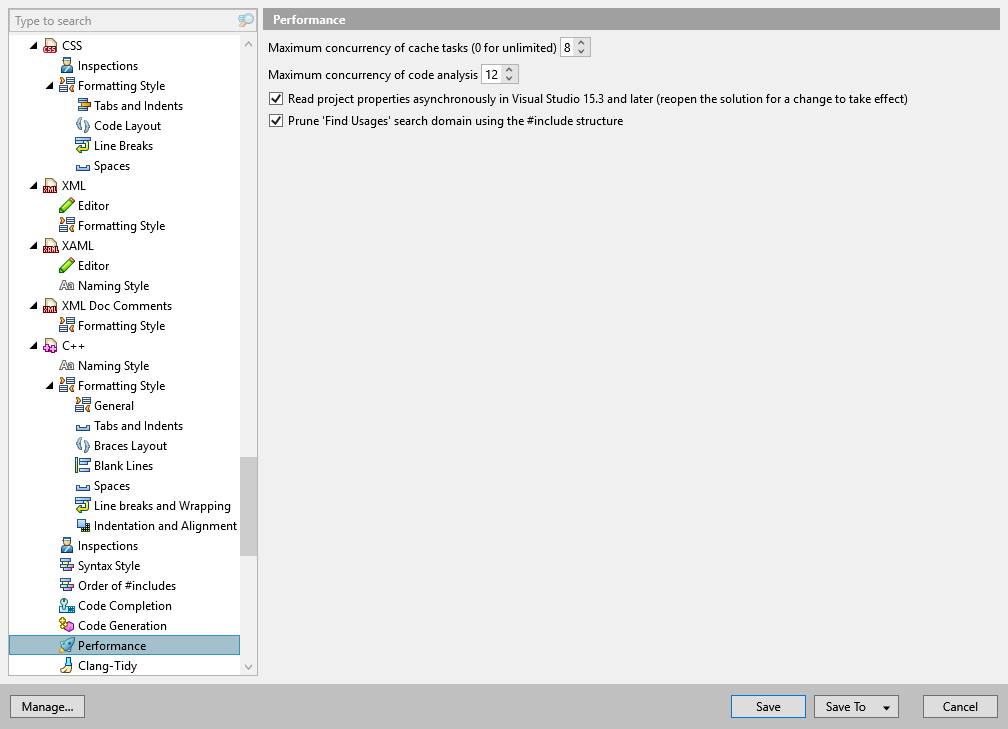Performance
ReSharper | Options | Code Editing | C++ | Performance

In this page, you can adjust some preferences that affect performance of processing C++ code.
Maximum concurrency of cache tasks | By default, the maximum concurrency of cache tasks is unlimited, that is, ReSharper will use all available CPU cores for building caches in background. You may need to limit this number if you experience performance problems (lags on non-responsive UI), which may be related to background caches consuming too much memory thus triggering GC too often. |
Maximum concurrency of code analysis | By default, the maximum concurrency of code analysis stage is unlimited, that is, ReSharper will use all available CPU cores. You may need to limit this number if you experience performance problems (lags on non-responsive UI). |
Read project properties asynchronously in Visual Studio 15.3 and later | For most of its features (including navigation, code analysis, refactorings, and code completion) , ReSharper builds and maintains a model of the current solution. The model is cached and then used to instantly access any item in the solution structure. To build this model, ReSharper can use one of the two available Visual Studio APIs — the older one and the new one, which was introduced in Visual Studio 15.3 and is used by default. This option lets you revert to the older API if you experience some problems with code analysis. |
Prune "Find Usages" search domain using the #includes structure | This option speeds up Find Usages using additional information about references of included files. |
note
ReSharper's settings are saved in settings layers, which allow you to have different settings for different solutions and to share your settings with your team.